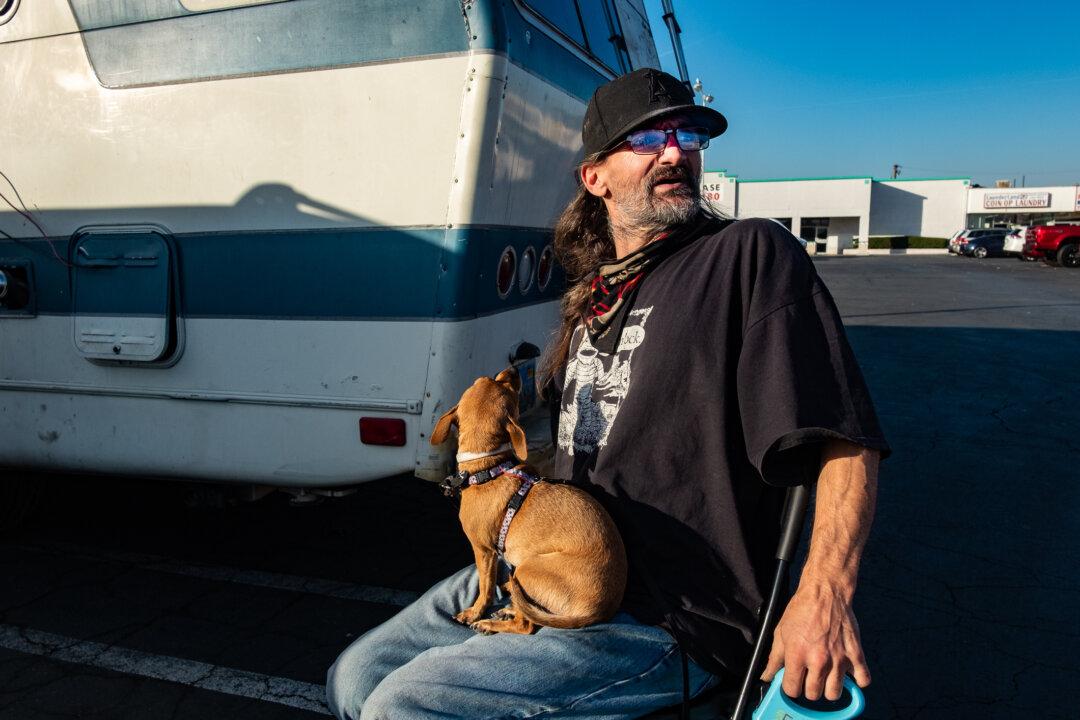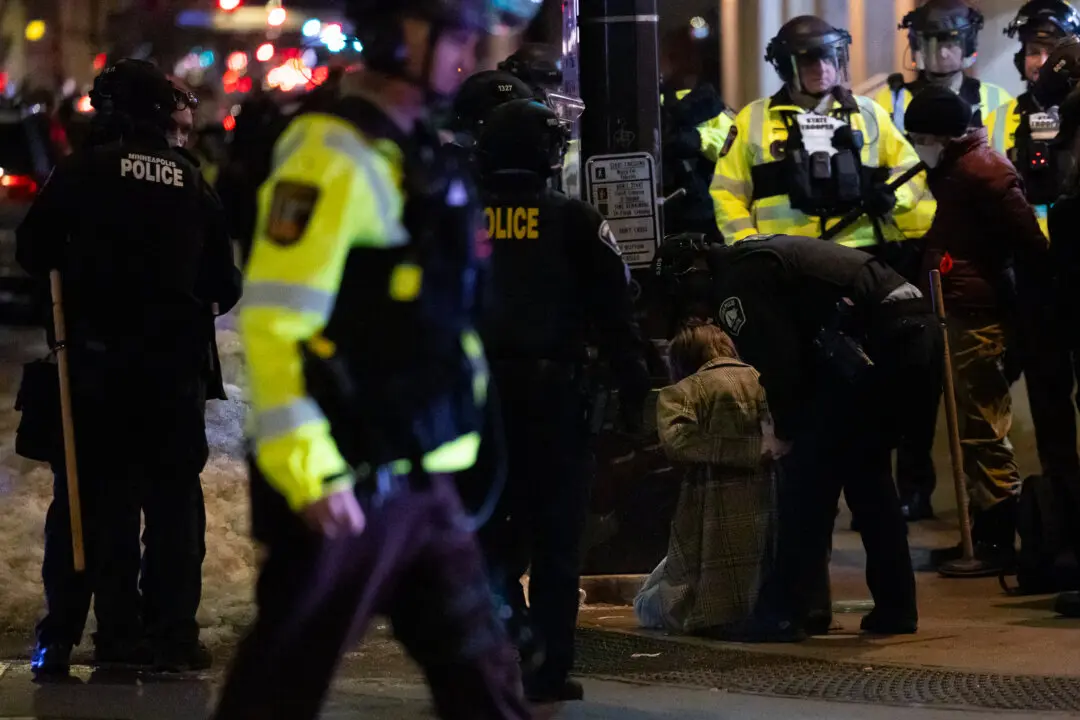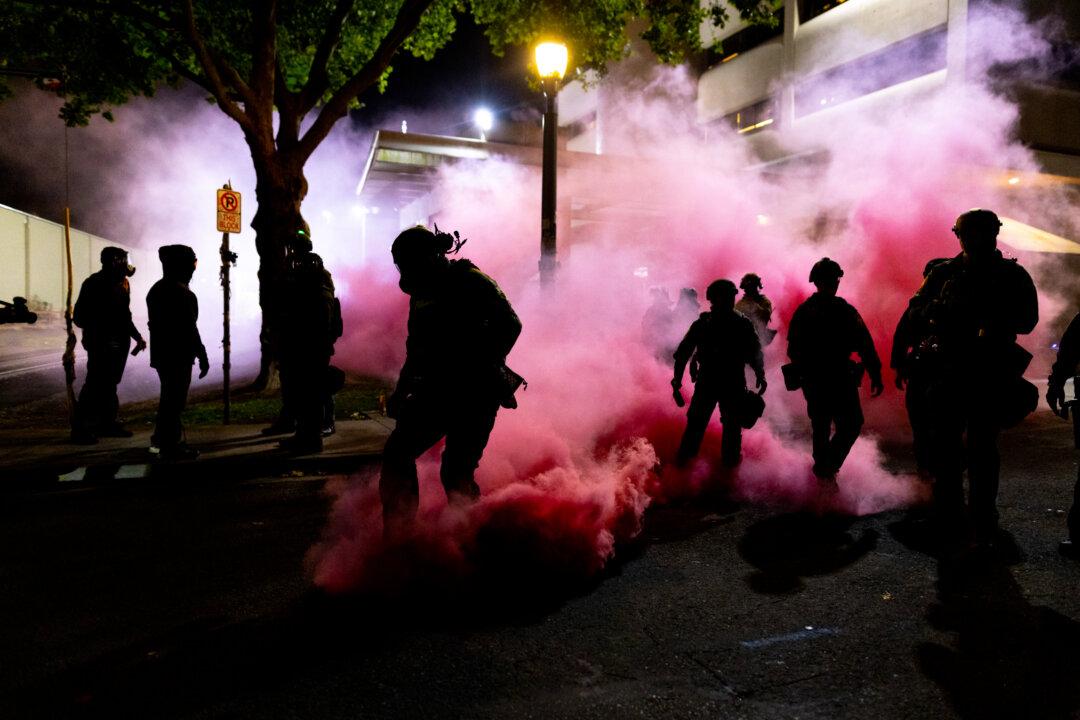FULLERTON, Calif.—As surrounding cities have banned RV parking in recent years, people living in their RVs have congregated in Fullerton, California. The city decided to ban RV parking in November 2020, but it has lifted the ban until the end of stay-at-home orders.
William Abercrombie is among those living in his recreational vehicle (RV) on the streets of Fullerton, and he doesn’t know what he’ll do when the ban takes effect. He currently moves his RV all over the city to avoid altercations with businesses and locals.




